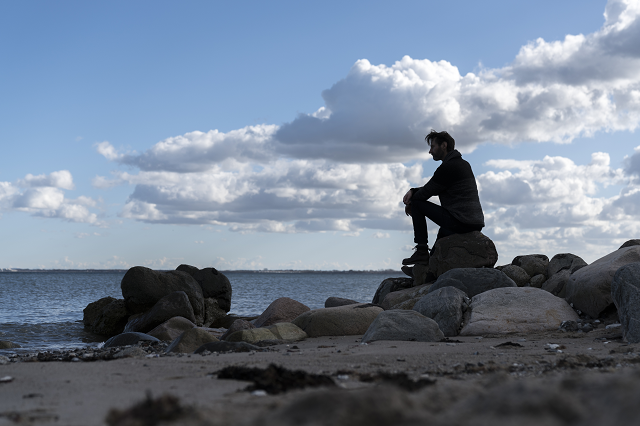
Credit: Getty Images / Tina Terras & Michael Walter
*This piece was originally published on November 15th, 2019*
There is a famous quote from French existentialist philosopher Jean-Paul Sartre: “Hell is other people.” While some may agree with that sentiment and crave solitude, there’s a lot of evidence that people are drawn to each other. We form friendships, sports teams, knitting circles and complex societies, unlike any other species on Earth.
Nicholas Christakis, a doctor, sociologist, and author of “Blueprint: The Evolutionary Origins of a Good Society,” has spent years trying to understand why people often feel compelled to connect to - and help - each other. The answer he arrived at was that, although humans are capable of a lot of bad things, it turns out being good has long been coded into our biology.
Three Takeaways:
- According to Christakis, humans are more inclined to friendship, love, cooperation and other social behaviors than they are to bad behaviors. People don’t just choose to help each other — they have evolved to do it. We see this behavior in very young children. Studies have shown that kids who are as young as six months old prefer those who show kindness.
- People often innately have a preference for others who are similar to them. And though this might seem counter-intuitive, Christakis says that the tendency likely co-evolved with our desire to help each other. By dividing everyone into smaller groups, Christakis argues, we gave society structure. Individuals then had a focus for their altruism, which allowed them to act on it.
- How might we overcome societal divisions? One answer might be by redefining the boundaries that divide social groups. Christakis believes that this is easier than people may think. In an experiment where a group of children were assigned different colored t-shirts, the kids changed how they treated each other in just a few days. Christakis argues that this is proof that people should be able to redefine who makes up a social group.
More Reading:
- Want to know more about the experiment that tested if babies understand the difference between kind and unkind? See videos of the experiment here, and read one researcher’s account of their findings here.
- In the 1940s, surveyor Allan Eden took a job mapping the Auckland Islands. During his time there, he visited and photographed many shipwreck sites. Read the accounts and see the photos of the Grafton and Invercauld shipwreck sites, and what he learned about them.
- Christakis says doing good makes our societies work, but what causes them to fail? University of Cambridge researcher Luke Kemp discusses what causes civilizations to collapse in this article by the BBC.

